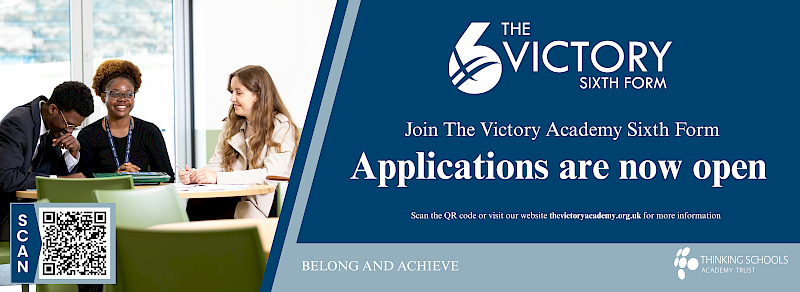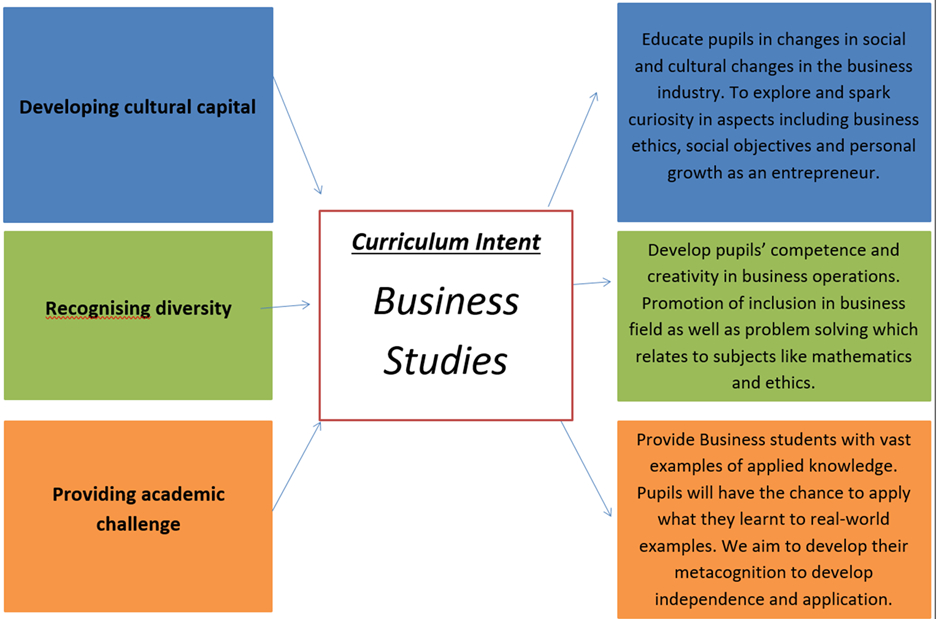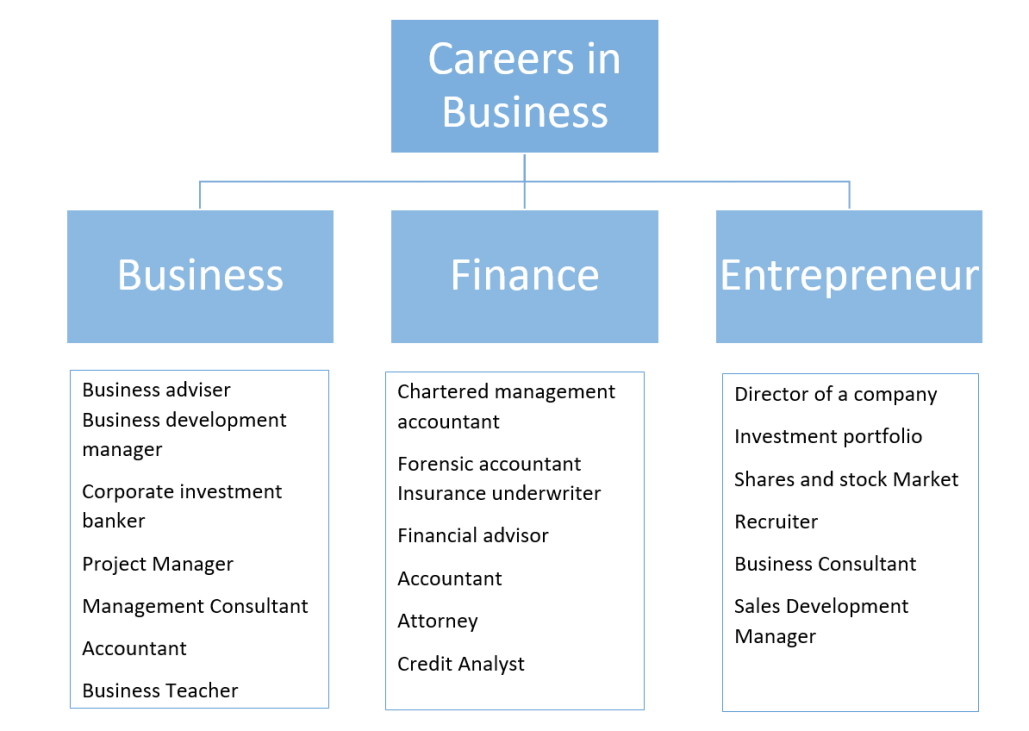
Applications for The Victory Academy Sixth Form are now open! To apply please click here.

Applications for The Victory Academy Sixth Form are now open! To apply please click here.
In the Business department at The Victory Academy, we aim to develop students’ understanding of how the local / national / global economy works through analysing economic issues, problems and institutions that affect everyday life. The aim of the Business studies curriculum is to equip students with the appropriate knowledge and skills needed to develop their employability and identify business problems and opportunities. To successfully give them the platform to become the entrepreneurs and business leaders of the future, transforming their life chances.
Our curriculum combines both real world case studies and opportunities for students to think like business leaders, enabling them to think and evaluate far beyond the context of the classroom. We have developed an exciting and ambitious curriculum to give all learners, the knowledge and skills to be successful in the future and proceed on to higher levels of education.
The Business department go above and beyond to support students achieve the very best examination results possible. We do this by, quality first teaching, allowing students to think analytically, reach logical conclusions based on data, and empowering our students to be able to actively and accurately assess themselves, and be self-motivated learners, to enable them to shape their own success once they leave our Academy.


| Term 1 | Term 2 | Term 3 | Term 4 | Term 5 | Term 6 | |
| Year 10 | Topic 1.1: Enterprise and entrepreneurship | Topic 1.2: Spotting a business opportunity | Topic 1.3: Putting a business idea into practice | Topic 1.4: Making the business effective | Topic 1.5: Understanding the external influences on business | Topic 2.1: Growing the business |
| Year 11 | Topic 2.2: Making marketing decisions | Topic 2.3: Making operational decisions | Topic 2.4: Making financial decisions | Topic 2.5: Making human resource decisions | Revision |
In Year 10 students complete Theme 1: Investigating Small Business and start Theme 2: Building a Business.
Students are introduced to the dynamic nature of business in relation to how and why business ideas come about. They will explore how new and small businesses identify opportunities through understanding customer needs and conducting market research. Students will also explore a range of factors that impact on the success of the business, including competition, location, the marketing mix and the business plan. They are introduced to a range of external factors, such as stakeholders, technology, legislation and the economy. Finally, students are introduced to methods of growth and how and why business aims and objectives change as businesses evolve.
In Year 11 students complete Theme 2.
Students will explore how each element of the marketing mix is managed and used to inform and make business decisions in a competitive marketplace. Students will understand the tools a business has to support financial decision making, including ratio analysis and the use and limitation of a range of financial information. Finally, aspects of growing a business such as organisational structure, recruitment, training and motivation are explored.
Students then start a structured revision programme to prepare for their Business GCSE examination.
Pupils gain insights into real world application of marketing, human resources, ownership structures and market structures by reading business news and developing data response and evaluation skills.
The Edexcel GCSE (9–1) in Business consists of two externally-examined papers, one covering Theme 1 content and one covering Theme 2 content, both sat in May/June of Year 11.
Theme 1: Investigating small business
Written examination: 1 hour and 45 minutes 50% of the qualification 90 marks
Content Overview
Topic 1.1 Enterprise and entrepreneurship
Topic 1.2 Spotting a business opportunity
Topic 1.3 Putting a business idea into practice
Topic 1.4 Making the business effective
Topic 1.5 Understanding external influences on business
Assessment Overview
The paper is divided into three sections: Section A: 35 marks Section B: 30 marks Section C: 25 marks.
The paper will consist of calculations, multiple-choice, short-answer and extended-writing questions.
Questions in Sections B and C will be based on business contexts given in the paper.
Theme 2: Building a business
Written examination: 1 hour and 45 minutes 50% of the qualification 90 marks
Content Overview
Topic 2.1 Growing the business
Topic 2.2 Making marketing decisions
Topic 2.3 Making operational decisions
Topic 2.4 Making financial decisions
Topic 2.5 Making human resource decisions
Assessment Overview
The paper is divided into three sections: Section A: 35 marks Section B: 30 marks Section C: 25 marks.
The paper will consist of calculations, multiple-choice, short-answer and extended-writing questions. Questions in Sections B and C will be based on business contexts given in the paper.

No prior experience is necessary to study Business Studies at A Level, although a GCSE grade 5 in Maths and English is required.
Business is always headlining news. Whether it be Brexit or unscrupulous businesses avoiding their tax, it’s a talking point for all citizens and an important part of your life.
In studying business, you will find out;
You will take three, two-hour exams at the end of year 13.
Paper 1 Marketing, people and global businesses (35%)
Paper 2 Business activities, decisions and strategy (35%)
Paper 3 Investigating business in a competitive environment (30%)
Underpinning these units, you will carry out calculations, interpreting data, thinking critically about issues and making informed decisions. These analysis and evaluation skills are all the skills that are needed for further study and employment.
Business can lead to a career in in marketing, finance, law or personnel. It also fits in well with the management aspects of many careers.

More information on the specification can be found on the Edexcel website
BBC news website to keep up to date with current affairs
Newspapers
Tutor2u website
BBC Bite size website
The Business Review
The Economist
News programmes
Broadsheet newspapers
Ted Talks on business topics